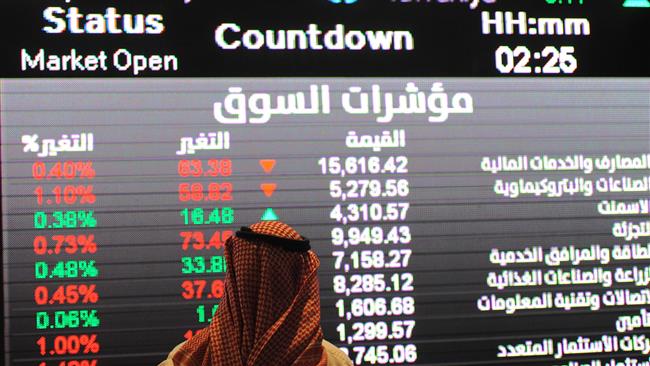Saudi regime blocks over 1,200 bank accounts amid crackdown


Zionist Saudi regime has blocked the bank accounts of over 1,200 individuals and companies as part of the kingdom’s purported anti-graft campaign which is considered the biggest purge of the country’s elite in the kingdom’s modern history.
The Saudi central bank has been expanding the blacklisted accounts on an almost hourly basis since Sunday, Reuters cited Saudi bankers and lawyers as saying on Tuesday.
Dozens of princes, ministers and former ministers were detained on the order of Saudi Arabia’s so-called Anti-Corruption Committee headed by Crown Prince Mohammed bin Salman on Saturday in a crackdown which is widely believed to be aimed at consolidating his power.
The detained individuals are facing allegations of money laundering, bribery, extorting officials and misappropriation of public office for personal benefits.
Saudi authorities have warned that any assets related to the corruption cases would be seized as state property.
Billionaire Prince Alwaleed bin Talal, the chairman of investment firm Kingdom Holding, Nasser bin Aqeel al-Tayyar, the founder of Al Tayyar Travel Group and Amr al-Dabbagh, the chairman of builder Red Sea International are among the top business executives detained during the purge.

The stocks of all three companies, which have issued statements saying they continue to operate as normal, plunged between 9 and 10 percent on Tuesday.
A no-fly list has reportedly been drawn up and security forces in some Saudi airports are preventing owners of private jets from departing the country without a permit.
Business uncertainty and capital flight
While the crackdown has triggered uncertainty among businesses over the prospect of political instability and capital flight, the Saudi authorities are trying to reassure investors that the purge is part of the country’s economic reform plan.
The central bank reportedly held a meeting with some foreign banks this week, assuring them that the freezing of accounts targeted individuals and that the purge would not harm businesses, including those with ties to the arrested suspects.
Moreover, Saudi Commerce Minister Majid al-Qasabi stressed that companies, including those owned by the arrested elites, will be accorded “full protection” under the law.
Nevertheless, the current circumstances are fueling anxiety among investors who believe the arrests and asset freezes have left their businesses vulnerable.
While the kingdom’s general economic downturn and the unstable political situation have already triggered an outflow of capital in recent years, the latest anti-corruption drive has shaken the business community to the core, with major enterprises wondering who will be targeted next.

Over the past year, the crown prince has become the ultimate decision-maker for the Persian Gulf kingdom’s military, foreign, economic and social policies, angering some royals frustrated by his unorthodox and swift rise.
Political analysts say the purge by the 32-year-old crown prince has centralized power to a degree that is unprecedented in recent Saudi history.
US President Donald Trump has expressed support for the crackdown, saying some of those arrested had been “milking their country for years.”







